CHAPTER
ELEVEN
Lucas and Bob found Weaver sitting in the conference room with Taylor, the Coast Guard cop. Weaver looked up when Bob and Lucas arrived, and said, “We’ve got people all over South Florida, chasing down those girls . . .” He glanced at Taylor, caught something in her expression, and amended, “. . . women. And we’ve approved four dive boats to look for the drugs.”
“We got a lower response on the dive boats than we anticipated,” Taylor said. She brushed her hair back in frustration. “One of our officers in Fort Lauderdale asked some of the divers why that was. He was told the chance of recovery was too low, the cost of going after it was too high, and because the drug runners might cut off your head if they caught you doing it. The guys out there now are doing it for the adventure, more than anything else. I kinda don’t think they’ll last long, once the novelty wears off.”
“Fifty thousand dollars ain’t what it used to be,” Bob said. “Sounds like a lot, but after taxes . . .”
“I’ll tell you something else,” Taylor said. “There are a lot of guns on the boats that are out there. Perfectly legal, of course. If some Mafias show up and try to push them off they could get a boat full of bullets. I don’t know what I think about that.”
“Even with all that, we’re moving better than we were a week ago,” Weaver said, to Lucas and Bob. “I appreciate what you guys have done. I’m kinda surprised you didn’t go after these girls, these women, yourselves.”
“You’re better equipped to handle it,” Lucas said. “We’ve got another thing going.”
He told them about Magnus Elliot. “He knows something. At least, he thinks he knows something. If he does, we could get a name. We could even get it this afternoon.”
“That would be off-the-scale good,” Weaver said. “That’d be better than finding the dope.”
“Let us know what happens with the hairdressers,” Lucas said. “We’ll be up in our rooms doing more research, checking with some of the Miami narcs. And we’re waiting for Elliot to make his deal with the U.S. attorney.”
“Anything big happens, I’ll call,” Weaver said.
Out in the hall, Bob said, “I thought we were going to take naps.”
“That’s what I’m gonna do,” Lucas said. “I just wasn’t going to admit it.”
“Ah. Good work. I knew there was a reason I partnered up with you,” Bob said. “I’ll call you about 5:30. If Elliot hasn’t gotten back to us, we could go get some lobster.”
Lucas took a short nap, then read through the new reports coming from Weaver’s agents. He found little that was interesting. Bob called a few minutes after five, said, “I couldn’t stand staring at the ceiling anymore. Let’s go eat.”
They were at the Rendezvous, chicken tenders and sea bass, when Magnus Elliot called. They were sitting far enough from the next set of diners that Lucas put the phone on the speaker so Bob could hear what was said, and they both hovered over it. “Okay, we got a deal,” Elliot said.
“What do we get?”
“The one goddamn thing I got,” Elliot said. “A name and a location. Donald Romano. He lives in Coral Gables, but he’s got a lights warehouse store down in Florida City—he sells lights to building contractors down here, and dope up in New York.”
“Spell his name,” Lucas said. “Where’s Coral Gables . . . and Florida City?”
Elliot spelled Romano, and said, “Coral Gables is a town that’s like hung on the side of Miami. Upper-level money. Florida City is south of Miami, right by the top of the Keys, probably one of the poorest towns in the state. The lights store is called Larry and Kay’s Contractor Lighting Warehouse. I think Larry and Kay are his daughter and son-in-law.”
Bob: “Wait a minute. Romano sells lights? And dope?”
“Yeah. The way I hear it, the lighting business is his money laundry,” Elliot explained. “He’s got cash businesses in New York and New Jersey, loan sharking and dope. He buys lights from the manufacturers and sells them at a twenty-five percent markup to condo developers. He kicks the whole markup back, under the table, in cash, so he breaks even on the sale of the lights. But: the contractors now have the dirty cash, and he has a check from the contractors that he puts in the bank, reports the markup as profit on the lights, pays his taxes, and the money is clean. So I’m told.”
“Are all the developers crooks?” Bob asked.
“Yeah, most of them,” Elliot said. “They get those lights at wholesale and a nice pile of invisible cash to tuck in their pockets, tax-free. I mean one good-sized condo project, you’re talking millions of dollars in lighting. And guano in kickbacks.”
“Guano is bat shit,” Bob said.
“Local idiom,” Elliot said. “You know, guano-this, guano-that. It usually means ‘a lot.’” He considered for a moment, then said, “Of course, it can also mean ‘not a lot.’ It depends.”
“Who told you all this?” Lucas asked.
“A Mexican friend who’s dealt with him. Romano used to buy his dope from the Mexicans and ship it north, but now he’s gone outside, I guess to some Colombian newcomers. The Mexicans are fairly pissed about that,” Elliot said.
“And your Mexican friend thinks Romano was on the boat, or he knows who was?” Lucas asked.
“Well, the dope ain’t coming from them, the Mexicans. The Mexicans say that a big load of dope hit Staten Island right after that shooting this summer,” Elliot said. “My friend said that their New York marketing guys say their whole sales strategy took a hit.”
Bob: “The Mexicans have a sales strategy? They got marketing guys?”
“Well . . . yeah. How’d you think all this got done? It’s a business, like Facebook. Just a different addiction.”
“Did you know all this when we talked, or did you get it from your Mexican friend this afternoon?” Lucas asked.
“I knew some of it . . . and I made a call and got the rest. Romano’s name.”
“What else?” Lucas asked.
“Nothing else, except that attorney lady is a bitch on wheels. I wanted to smack her.”
“Not a good idea,” Lucas said.
“Yeah, I got that,” Elliot said. “This better pan out, man. I’m taking a major chance here.”
They got off the phone and Lucas called Weaver: “We’re at dinner, down the street. We need to talk to you.”
“I’m sitting here watching classic football from 2003 on YouTube, I’d hate to stop doing that for some horseshit law enforcement issue,” Weaver said.
“See you in a half hour,” Lucas said.
Weaver got serious in a hurry, when Lucas gave him the name.
The online FBI files identified Donald Romano as an old-line organized crime stalwart about a decade past his use-by date.
“He’s been hanging around forever, never important enough to get shot. He did a couple of short pieces in New Jersey for loan sharking and related assaults. Pretty amazing, when you think about it,” Weaver said, dragging his finger down the computer screen as he read the files; his finger left a trail like a garden slug’s. “They don’t allow payday loan shops in Jersey, so if they didn’t have loan sharks, you probably couldn’t get a loan . . . and he had a couple of small garbage- and trash-hauling companies that supposedly were connected to one of the New York Mafia families, but that was years ago. Decades, actually.”
“Nothing about drugs?”
“No, but loan sharks aren’t usually fussy about where their money comes from,” Weaver said. “Maybe he saw an opening—or maybe he’s the South Florida manager for one of the New York distribution systems. He’s got to have a significant distribution system if there’s as much heroin coming in as we think.”
Читать дальше
![Джон Сэндфорд Ocean Prey [calibre] обложка книги](/books/384313/dzhon-sendford-ocean-prey-calibre-cover.webp)



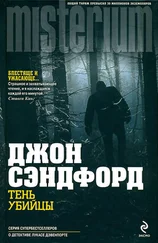
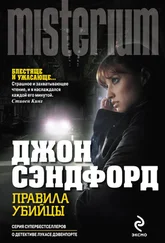
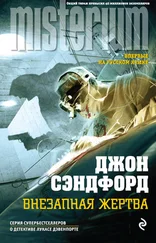
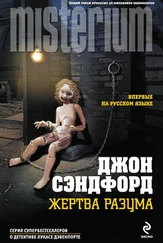


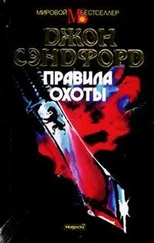
![Джон Ирвинг - Viename asmenyje [calibre]](/books/384315/dzhon-irving-viename-asmenyje-calibre-thumb.webp)
![Джон Ирвинг - Vandens metodas [calibre]](/books/384316/dzhon-irving-vandens-metodas-calibre-thumb.webp)